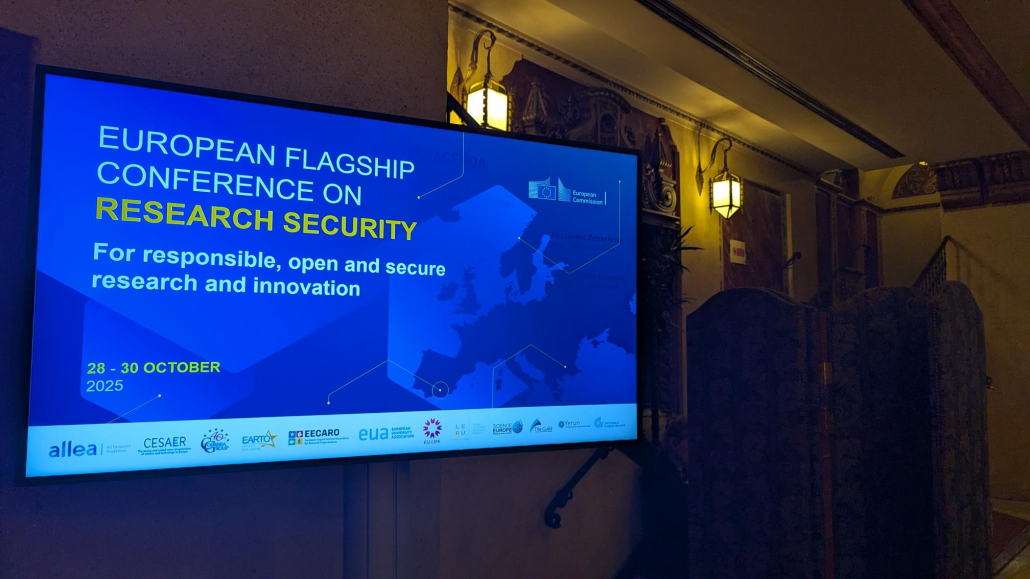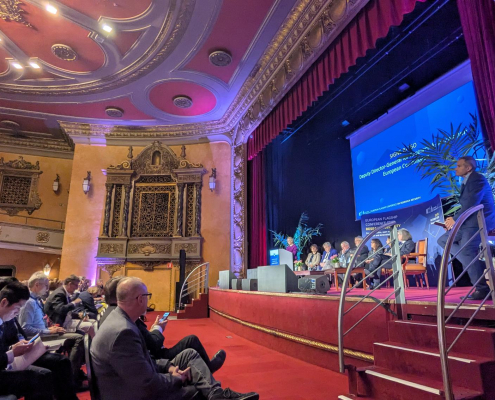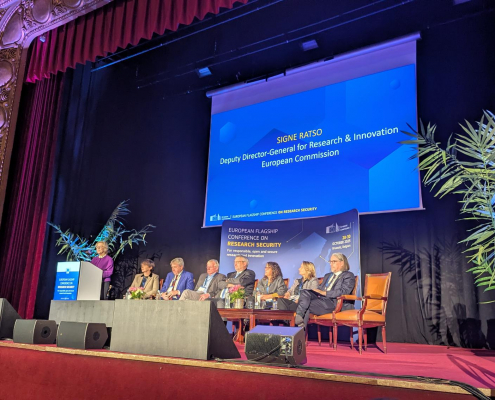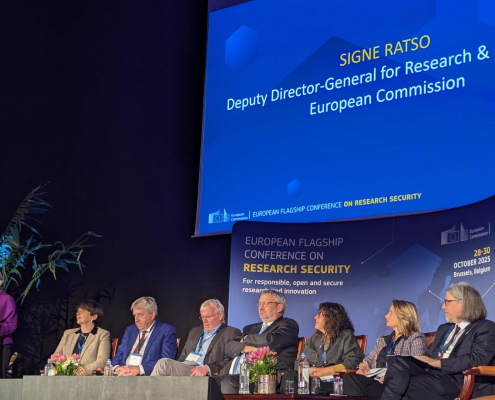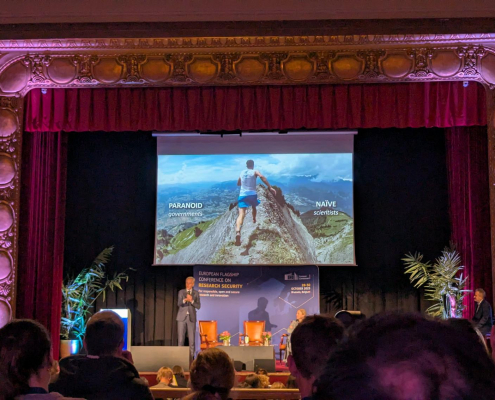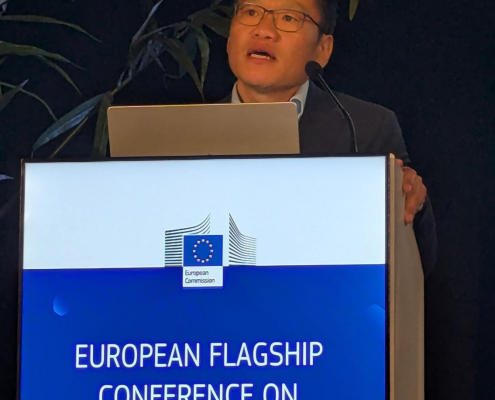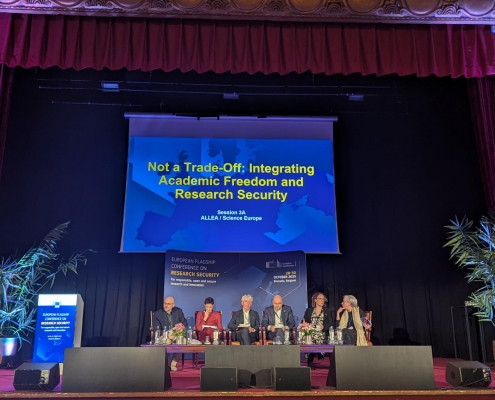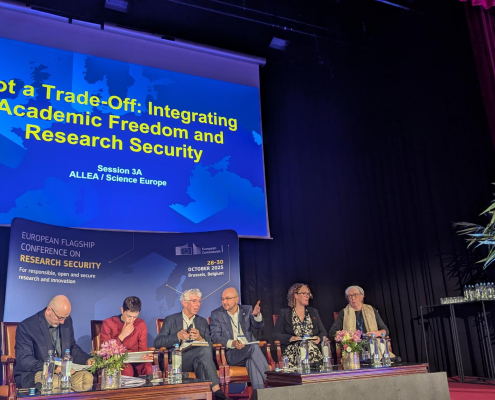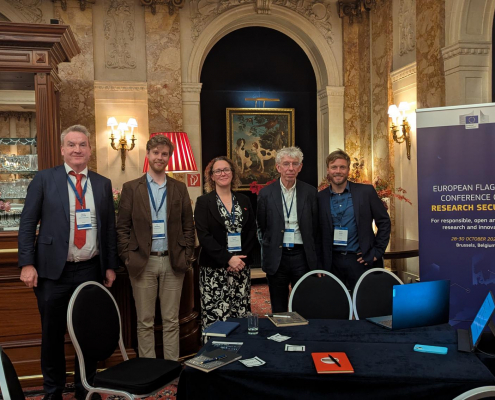ALLEA Co-Organises Flagship Conference on Research Security
How can we ensure that international research and innovation take place in a responsible way that is both open and secure, and with full respect of academic freedom? This was the central question at the European Flagship Conference on Research Security in Brussels.
From 28-30 October, ALLEA co-organised the European Flagship Conference on Research Security in Brussels, together with the European Commission and 11 other partners, including Science Europe, YERUN, LERU, and the Coimbra Group. The conference, which followed Chatham House Rules, was attended by over 600 registered participants from across Europe, and comprised a wide spectrum of stakeholders, including funders, scientists, diplomats, industry, and policymakers. The conference focused on developing sustainable approaches to research security during times of geopolitical upheaval, while maintaining avenues for international collaboration, which is fundamental to research excellence. Discussions touched on finding ways to balance considerations of openness, academic freedom, and security concerns, the need for more dialogue between the member states of the European Union (EU) on the risks to, and mitigation of, research security, adopting actor-agnostic approaches to research security objectives, and devising universal standards and measures for research security (and freedom) across the EU and the European Research Area (ERA) that are legally binding.
“The research community is facing a lot of risks that threaten to undermine the scientific enterprise. Some of them are malign and should be fought resolutely. But some are less so and should be coped with because we don’t want to live in a risk-free society, but rather an open one where science remains free.”
– Arne Jarrick, Chair, ALLEA Task Force on Integrating Research Security and Academic Freedom
ALLEA-Science Europe Joint Session on Balancing Academic Freedom and Research Security
On 29 October, ALLEA and Science Europe co-hosted a session titled, Not a Trade-off: Integrating Academic Freedom and Research Security to discuss ways to implement security measures without compromising academic freedom, which is critical to both the scientific endeavour and democratic societies. The panel discussion built on ALLEA and Science Europe’s ongoing collaboration on this subject, and included two members of ALLEA’s newly formed Task Force on Integrating Research Security and Academic Freedom, Arne Jarrick (Royal Swedish Academy of Letters, History, and Antiquities/Royal Swedish Academy of Sciences) and Alexandra Lewis (The British Academy).
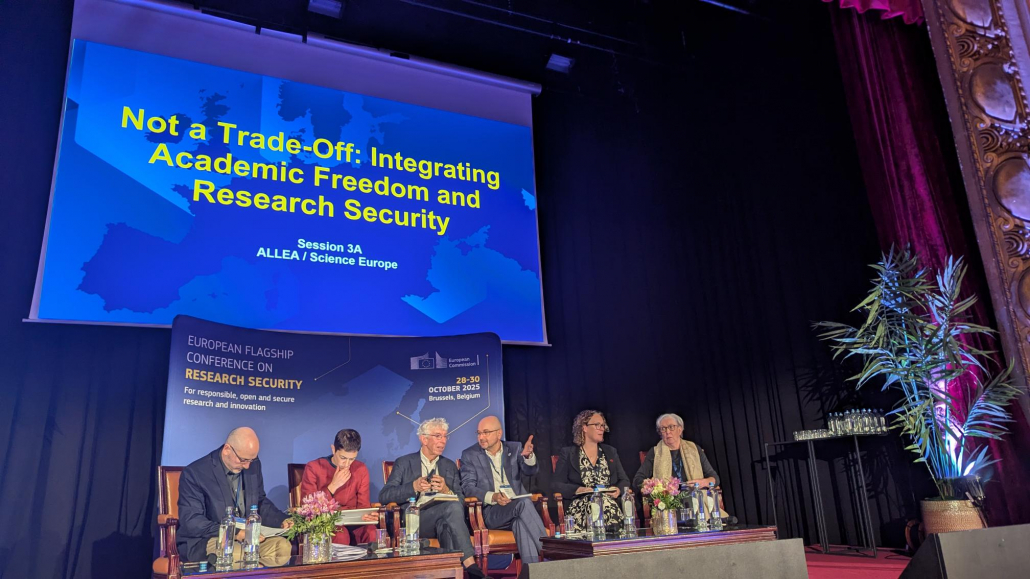
(From L to R: Javier Moreno Fuentes (Spanish National Research Council), Laure Ognosis (SNSF), Arne Jarrick (ALLEA/Royal Swedish Academy of Letters, History, and Antiquities/Royal Swedish Academy of Sciences), Krzysztof Jóźwiak (National Science Centre, Poland), Alexandra Lewis (ALLEA/British Academy), Marijk Van Der Wende (Utrecht University)
Panellists discussed how to assess the risks versus benefits of international collaboration and the capacity building required to perform these evaluations, without infringing on institutional autonomy. Some insights from the panel discussion include:
- There can be no meaningful academic freedom without the guarantee of the integrity of research systems, which requires reasonable security measures. This implies a need to develop universally agreed upon definitions of risks to academic freedom and research security in order to effectively evaluate the proportionality of security measures.
- Subsidiarity is key – the primary responsibility for ensuring the security of science and research must lie with researchers rather than governments.
- Breakthrough research needs academic freedom and openness. Currently, the trilemma of balancing openness, security, and freedom considerations requires the whole ecosystem, at the national, regional, and international levels, to work coherently to mitigate the risks and minimise the trade-offs.
Inaugural Meeting of the ALLEA Task Force on Integrating Research Security and Academic Freedom
Members of the newly minted Task Force on Integrating Research Security and Academic Freedom also came together for their first meeting at the Flagship Conference. Representatives from the Royal Swedish Academy of Letters, History, and Antiquities, the Royal Swedish Academy of Sciences, the British Academy, the Turkish Academy of Science TÜBA, the Royal Irish Academy, the Royal Society, and the Council of Finnish Academies met to discuss the thematic priorities and activities of the task force, its involvement in ERA Action on Enhancing Research Security, their initial ideas on developing approaches to balancing openness and protection, and ALLEA’s efforts to encourage policies that support responsible research collaboration and academic freedom, while allowing for reasonable security interventions.
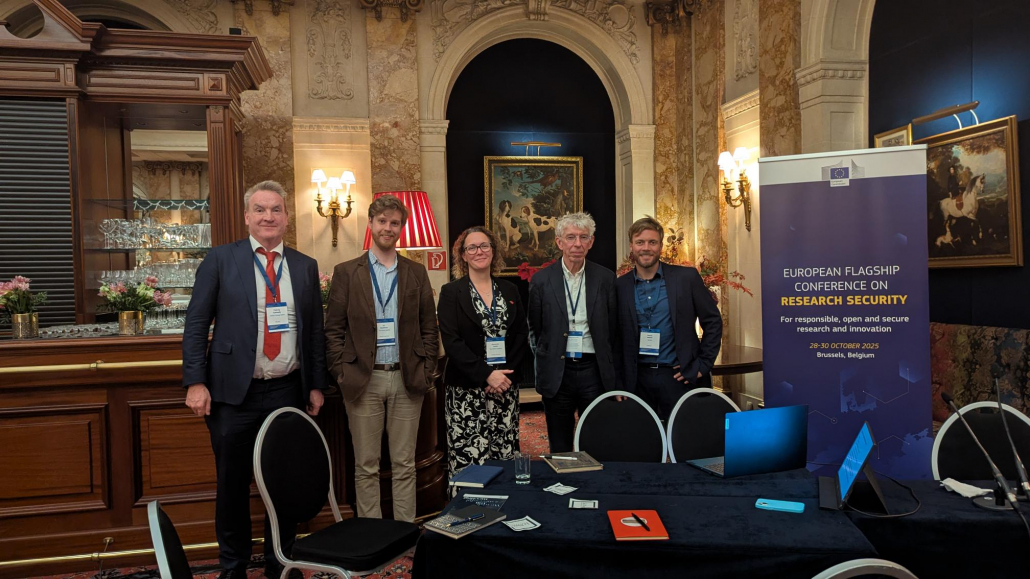
(From L to R): Pádraig Carmody (Royal Irish Academy), Kit Hardman (Royal Society), Alexandra Lewis (British Academy), Arne Jarrick (Royal Swedish Academy of Letters, History, and Antiquities/Royal Swedish Academy of Sciences), Daniel Kaiser (ALLEA)
The Task Force will centralise ALLEA’s efforts to meaningfully contribute to building an ERA that prioritises research integrity, international collaboration, and academic freedom, as fundamental pillars of science and democratic societies, even as it pursues a more secure research system. To read more about ALLEA’s position on achieving this balance, see here.

